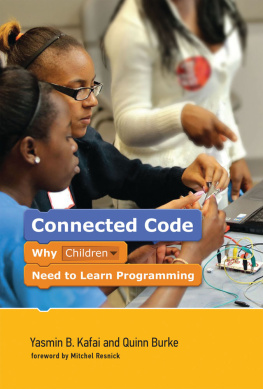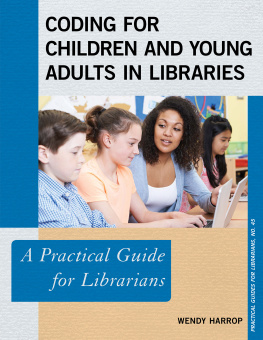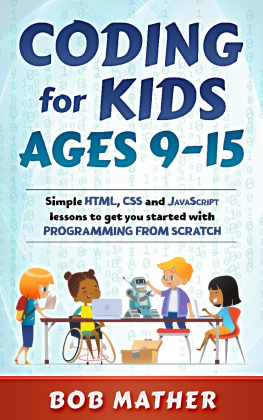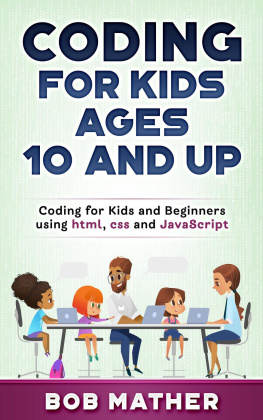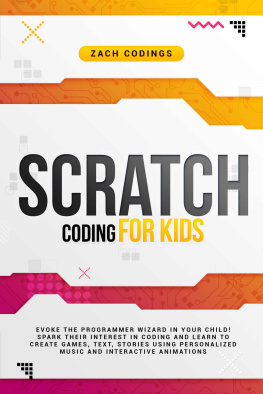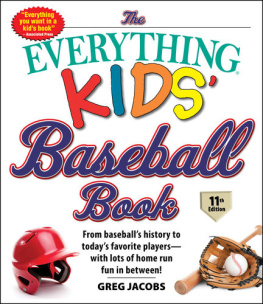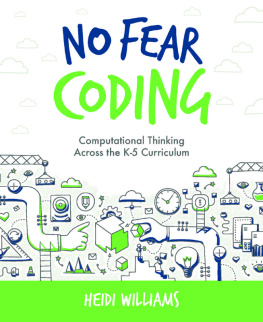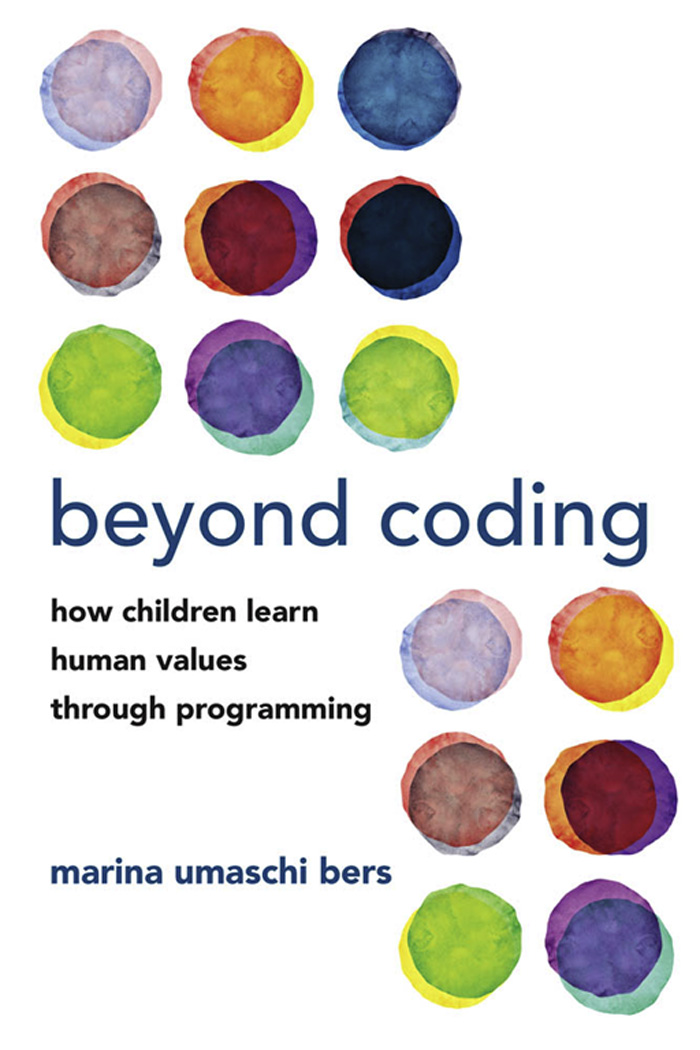
Beyond Coding
Beyond Coding
How Children Learn Human Values through Programming
Marina Umaschi Bers
The MIT Press
Cambridge, Massachusetts | London, England
2022 Massachusetts Institute of Technology
All rights reserved. No part of this book may be reproduced in any form by any electronic or mechanical means (including photocopying, recording, or information storage and retrieval) without permission in writing from the publisher.
The MIT Press would like to thank the anonymous peer reviewers who provided comments on drafts of this book. The generous work of academic experts is essential for establishing the authority and quality of our publications. We acknowledge with gratitude the contributions of these otherwise uncredited readers.
This book was set in ITC Stone Serif Std and ITC Stone Sans Std by New Best-set Typesetters Ltd.
Library of Congress Cataloging-in-Publication Data
Names: Bers, Marina Umaschi, author.
Title: Beyond coding : how children learn human values through programming / Marina Umaschi Bers.
Description: Cambridge, Massachusetts : The MIT Press, 2022. | Includes bibliographical references.
Identifiers: LCCN 2021013278 | ISBN 9780262543323 (paperback)
Subjects: LCSH: Early childhood educationComputer-assisted instruction. | Computer programmingStudy and teaching (Early childhood) | Computers and children. | Child development. | Values.
Classification: LCC LB1139.35.C64 B469 2022 | DDC 372.210285dc23
LC record available at https://lccn.loc.gov/2021013278
10987654321
d_r0
I believe in people. If I trust someone, we can work together to make our ideas concrete. But ideas cannot change anything themselves. They have to be shown to be true. And only people, living human beings, can do that.
Martin Buber (as told to Aubrey Hodes in Encounter with Martin Buber)
Contents
Acknowledgments
Gracias a la vida, que me ha dado tanto. Thanks to life, which has given me so much goes the song composed by Chilean Violeta Parra in 1966, just a year before she committed suicide. This song is beautifully performed by many, but my favorite version is by the Argentinean Mercedes Sosa, who made it into a personal anthem. In the United States, Joan Baez popularized it in 1974.
Gracias a la vida, que me ha dado tanto. This book tells the story of my intellectual journey. I started when I was a student of journalism and social communication sciences at the Universidad de Buenos Aires (UBA) as I first became interested in the communicative function of language. Later on, through my graduate work at the MIT Media Lab, I discovered the power of programming languages to think about who we are and the human values we cherish. During the last twenty years of teaching and doing scholarly research at Tufts University, I have worked with others to create new programming languages and support different forms of expression to develop computational thinking, coding skills, and character strengths.
In that journey, it is not only life, which has given me so much but also individual people: at the UBA, my professors, mentors, and friends, the late Anbal Ford and Alejandro Piscitelli. Anbal died several years ago, but I know he would have been proud of this work as he was a man of integrity. Alejandro is still active in his own research and teaching. For this book, through Zoom, we revisited old materials about the role of orality and literacy in society and discussed their relevance today. What a privilege to discuss this book with a mentor I gained when I was only twenty years old, thirty years later! Gracias a la vida, Alejandro and Anibal, y Universidad de Buenos Aires.
At the MIT Media Lab, the late Seymour Papert, Mitch Resnick, and Sherry Turkle played a very special role in my academic life. They taught me some of the most powerful ideas I ever encountered. Each one of them, in their uniqueness, supported my explorations, passions, and intellectual growth. Today, I am honored that one of my greatest mentors became a colleague. When in 2014 we launched ScratchJr, Mitch and I initiated together an adventure that impacts the lives of millions of young children all over the world. Gracias a la vida, Seymour, Mitch, Sherry, y MIT.
Rabbi Sergio Bergman has played a key role in my life. He is my rabbi, my teacher, my intellectual partner in new projects, and my friend. Throughout the years, we found different ways to work together and to engage in some of the most meaningful conversations of my life. As I started to write this book, Zoom conversations with Sergio helped me crystalized some of the harder ideas. Gracias a la vida, Sergio.
Over my two decades at Tufts University, so many people have inspired my work. In particular, I want to thank my colleagues Chris Rogers, from the Department of Mechanical Engineering, and Richard Lerner and Hanna Gebretensae from my own Eliot-Pearson Department of Child Study and Human Development, and Debbie Lee Kennan and Becky New, who are no longer at Tufts. All of them have been generous in discussing ideas, brainstorming projects, and teaching me about their own disciplines and methodologies. Gracias a la vida, Tufts University.
However, the biggest thank you at Tufts is for the wonderful students and staff at the DevTech Research Group. I started DevTech in 2001 as a brand-new assistant professor. Since then, the lab grew to over twenty people, an interdisciplinary group of committed undergraduate and graduate students, postdocs, staff, and research scientists working together to create the most amazing place to play and learn. It is at DevTech that the positive technological development (PTD) theoretical framework gets truly realized and the palette of virtues put in practice. None of the work I describe in this book could have been possible without the contributions of past and present DevTech members. In particular, for the preparation of this book, the following DevTechers helped me with different aspects: Megan Bennie, Melanie Becker, Riva Dhamala, Madhu Govind, Ziva Hassenfeld, Tess Levinson, Maya Morris, Emily Relkin, Amanda Strawhacker, Amanda Sullivan and Aim Unahalekhaka. Jessica Blake-West read and gave comments to the complete first draft. Laura De Ruiter suggested the paint by numbers metaphor. Gracias a la vida, DevTech.
At DevTech, we create prototypes and do research to improve them. However, to reach millions of children, we need products. I thank Mitch Rosenberg, who believed in my ideas and cofounded KinderLab Robotics with me in 2014. I also thank the wonderful team at KinderLab and its board members for making it possible for KIBO to reach thousands of homes and schools all over the world. Gracias a la vida, KinderLab Robotics.
Research needs money. Throughout the years, I have been fortunate to receive generous funding from the National Science Foundation, the Scratch Foundation, the Siegel Family Foundation, the David Lear Sulman Computing, Science, and Engineering Fund, and the Templeton Charity Foundation to support my work. Gracias a la vida, foundations.
My good friend Carey Schwartz graciously read and edited with a detail-oriented eye the manuscript several times and provided invaluable feedback on evenings at 9:00 p.m. sharp via email. Frank DeVito, one of the first friends I made when I moved to Boston, gave me thoughtful impressions based on his vast experience as an educator strongly grounded in the Catholic faith. Zvi Beckerman, from the Hebrew University of Jerusalem, reminded me of the relational aspect of any human activity. Mona Abo-Zena, from the University of Massachusetts Boston, discussed with me cultural funds of knowledge. My best friend from Argentina since I was a child, Vale Bakalar, a computer programmer herself, highlighted areas that were not clear, rejoiced at my stories, and confirmed their veracity.
Next page

